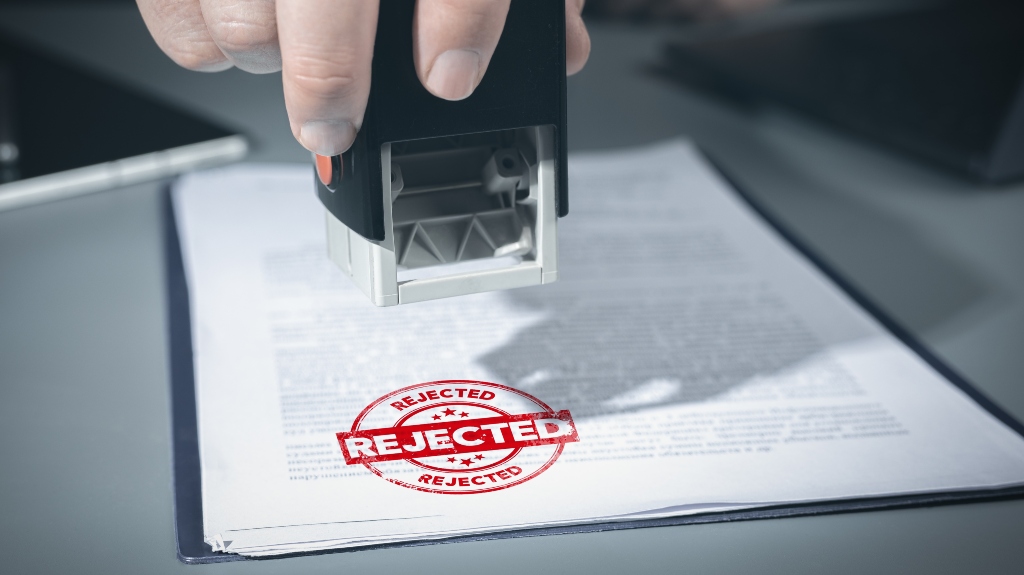Common Reasons Why Florida Hurricane Insurance Claims Get Denied
Hurricanes are an ongoing threat in Florida, causing significant property damage and economic disruption. While insurance is meant to provide financial relief for such disasters, policyholders often find their hurricane insurance claims denied. Understanding the common reasons for these denials can help you better prepare and avoid potential pitfalls. With extensive experience handling insurance claims in Florida, Parrish Law provides insights into why these claims get denied and how to navigate these challenges effectively.

Inadequate Documentation
One of the main reasons hurricane insurance claims are denied is due to inadequate documentation. Insurance companies require substantial evidence to process and approve claims. This includes photographs and videos documenting the damage immediately after the hurricane, receipts for any repairs or replacements done before and after the hurricane, and damage assessments from licensed contractors or engineers. Detailed documentation can significantly strengthen your appeal and support your claim.
Late Filing
Timeliness is critical when filing an insurance claim. Many policyholders don’t file their claims within the required time frame, leading to denials. Florida law sets specific deadlines for filing initial, supplemental, and reopened claims. It’s essential to review your policy to understand their timelines and act quickly by filing your claim immediately after the hurricane. Delays can weaken your case, as insurers may argue that intervening events, not the hurricane, caused the damage.
Policy Exclusions
Insurance policies often contain exclusions that limit coverage. Common exclusions in hurricane insurance policies include flood damage and disputes over whether the damage was caused by wind or water. Standard homeowners insurance typically does not cover flood damage, requiring separate flood insurance for this type of coverage. Insurers may dispute whether the damage was caused by wind (covered) or water (not covered under standard policies), making it crucial to understand the specifics of your policy.
Pre-Existing Damage
Insurers frequently deny claims by attributing the damage to pre-existing conditions. They may argue that the damage existed before the hurricane and is therefore not covered under the policy. This is why it’s imperative to keep detailed records of regular maintenance and repairs to your property. Maintenance records can demonstrate that the damage is new and directly related to the hurricane. Additionally, documenting the condition of your property before hurricane season starts can be invaluable if you need to prove that the hurricane caused the damage.
Insufficient Coverage
Policyholders sometimes discover that their insurance coverage fails to cover the extent of the damage. This can happen due to underinsurance, where the policy limits are too low to cover significant repairs or replacements, or coverage gaps, where certain types of damage or property may not be covered under the policy. Review your policy carefully and consider updating your coverage to ensure it meets your needs.
Miscommunication and Errors
Simple miscommunication or administrative errors can also lead to claim denials. Providing inaccurate or incomplete information on your claim can result in denial. Always double-check the details before submitting your claim and ensure all required forms and documents are correctly filled out and submitted. Keeping records of all communication with your insurer can help clarify misunderstandings and support your claim.
Alleged Fraud
Insurance companies are vigilant about detecting fraudulent claims. Due to this, honest mistakes can sometimes be perceived as fraud. Exaggerating the extent of the damage or providing inconsistent statements can raise red flags. Ensure your statements are consistent across all communications with your insurer and avoid overstating the damage.
Navigating the Appeals Process
If your hurricane insurance claim is denied, it is crucial to understand the appeals process. Parrish Law specializes in guiding policyholders through this challenging journey. Our approach includes thorough policy review, comprehensive evidence collection, strategic appeal preparation, and aggressive advocacy. We meticulously examine your insurance policy and the denial letter to identify inconsistencies or errors.
Our team helps gather all necessary evidence to support your appeal, including professional assessments and detailed documentation. We craft a compelling appeal letter, leveraging our deep understanding of Florida insurance law and extensive experience in similar cases. If the insurance company remains uncooperative, we are prepared to litigate your case, ensuring your rights are protected and you receive the compensation you deserve.
Why Choose Parrish Law? Proven Success in Florida Insurance Claims
Navigating the complexities of hurricane insurance claims and their denials requires expertise, persistence, and a thorough understanding of Florida law. Parrish Law has a proven track record of successfully handling insurance claims in Florida. Our expert team of lawyers, contractors, and consultants is dedicated to advocating for your rights and ensuring you receive the compensation you deserve.
Overcoming Claim Denials with Parrish Law
Understanding the common reasons for hurricane insurance claim denials in Florida can help you better prepare and avoid potential pitfalls. If your claim has been denied, do not attempt to navigate the appeals process alone.
Contact Parrish Law for a consultation and let our experienced team guide you through every step of the process. We are committed to ensuring your rights are protected and that you reach a favorable resolution for your hurricane insurance claim.
By understanding these common issues and seeking the expertise of a seasoned law firm like Parrish Law, you can significantly improve your chances of overturning a denied hurricane insurance claim and securing the compensation you need to rebuild and recover.